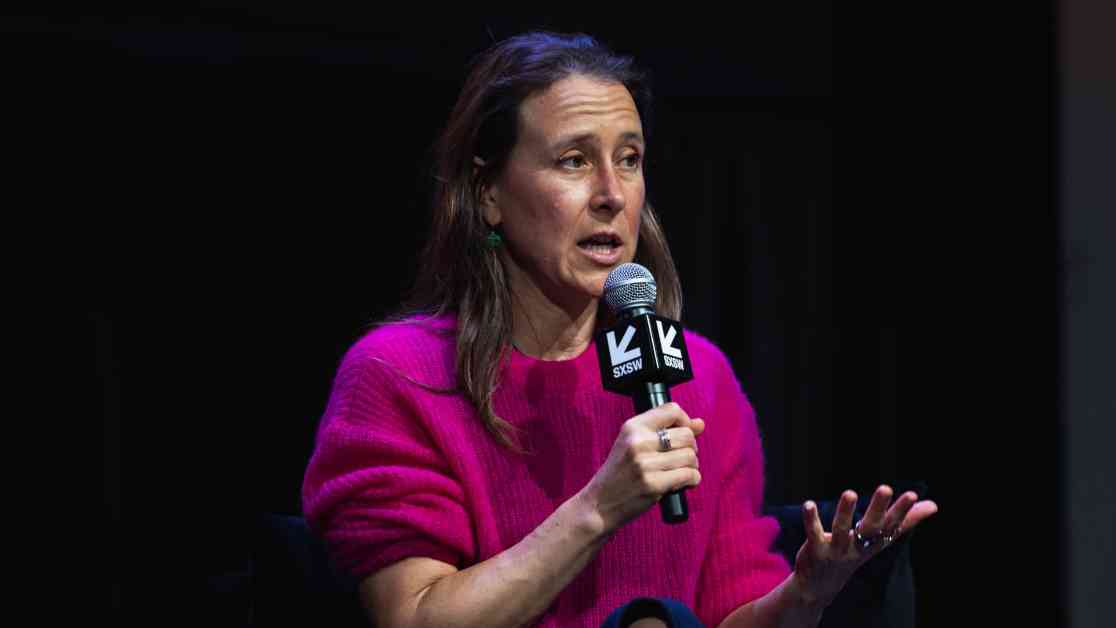23andMe CEO Anne Wojcicki Faces Board Resignations: The Inside Story
Anne Wojcicki, the co-founder and CEO of 23andMe Inc., found herself in the midst of a major shakeup as all seven independent directors of the company’s board tendered their resignations. The unexpected move left Wojcicki “surprised and disappointed,” as she expressed in a memo to employees. The resignations come at a critical juncture for the genetic-testing company, which has been grappling with a steep decline in its share price since going public in 2021.
Wojcicki, who played a pivotal role in founding 23andMe in 2006, remains steadfast in her commitment to taking the company private. The decision to go private comes after the company’s shares plummeted by over 95% from their peak, raising concerns among shareholders and prompting the formation of a special committee to explore potential paths forward.
Despite submitting a proposal to take the company private in July, Wojcicki faced rejection from the special committee, citing the lack of a premium to the closing price of 40 cents per share at the time. This rejection underscored the diverging views on the company’s strategic direction, ultimately leading to the resignation of the independent directors.
In a letter to Wojcicki, the directors expressed their disappointment with the lack of progress over the past five months in presenting a viable proposal that would benefit the non-affiliated shareholders. The absence of a fully financed and diligenced plan further fueled their decision to step down, citing a misalignment with Wojcicki’s vision for the company’s future.
Wojcicki, however, remains resolute in her belief that taking 23andMe private offers the best chance for long-term success. In the employee memo, she emphasized her unwavering dedication to the company’s mission and the transformative potential of genetic information in healthcare and therapeutic discovery. The announcement marked the beginning of a search for new independent directors to join the board and steer the company towards a path of growth and innovation.
The once highly valued 23andMe, with a market cap now under $200 million, is a far cry from its previous valuation of $3.5 billion. The sharp decline in share prices, closing at 34 cents on Tuesday, underscores the challenges facing the company in the public market. Amidst the turbulence, Wojcicki remains focused on charting a course that will position 23andMe for sustained success and impact in the genetic testing industry.
Challenges and Opportunities in the Genetic Testing Landscape
The upheaval within 23andMe’s board reflects broader challenges facing the genetic testing industry, characterized by rapid technological advancements, regulatory complexities, and evolving consumer preferences. As companies seek to leverage genetic information for personalized healthcare solutions, they must navigate a landscape fraught with ethical, legal, and scientific considerations.
The rise of direct-to-consumer genetic testing services has democratized access to genomic data, empowering individuals to uncover insights about their ancestry, health risks, and genetic traits. However, concerns around data privacy, accuracy of results, and the potential misuse of genetic information have raised regulatory scrutiny and public debate.
In this dynamic environment, companies like 23andMe face the dual challenge of balancing innovation with compliance, as they strive to deliver cutting-edge genetic testing services while safeguarding consumer trust and privacy. The recent board resignations at 23andMe underscore the tensions and diverging perspectives within the company’s leadership on how best to navigate these complexities and drive sustainable growth.
Charting a New Course: The Road to Private Ownership
As Anne Wojcicki steers 23andMe towards a future as a private entity, the company stands at a crossroads, poised to redefine its strategic direction and unlock new opportunities for innovation and growth. Going private offers 23andMe the chance to operate outside the short-term pressures of the public markets, enabling a longer-term focus on research, development, and strategic partnerships.
By taking 23andMe private, Wojcicki aims to create a more conducive environment for advancing the company’s mission of harnessing genetic information to revolutionize healthcare and therapeutic discovery. Freed from the constraints of quarterly earnings reports and market fluctuations, 23andMe can prioritize long-term investments in research, product development, and customer engagement.
The transition to private ownership also opens up possibilities for strategic collaborations and alliances that can accelerate 23andMe’s progress in the rapidly evolving genetic testing landscape. By forging partnerships with healthcare providers, pharmaceutical companies, and research institutions, 23andMe can leverage its expertise in genomics to drive advancements in precision medicine, disease prevention, and personalized healthcare solutions.
As Wojcicki embarks on the journey to reshape 23andMe’s future, she faces the challenge of rebuilding trust and confidence among stakeholders, including employees, investors, and customers. By demonstrating a clear vision, transparent communication, and a steadfast commitment to the company’s mission, Wojcicki aims to rally support for the transition to private ownership and pave the way for a new chapter of growth and innovation at 23andMe.
In conclusion, the resignations of the independent directors at 23andMe mark a pivotal moment in the company’s evolution, signaling a strategic shift towards private ownership and a renewed focus on long-term success. As Anne Wojcicki navigates the challenges and opportunities that lie ahead, the genetic testing industry watches closely, eager to see how 23andMe’s transformation unfolds in the pursuit of its mission to unlock the potential of genetic information for the benefit of all.
















